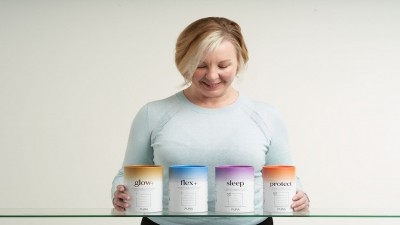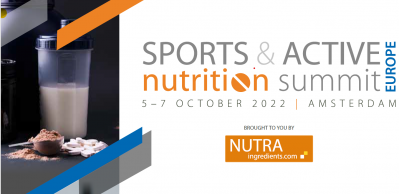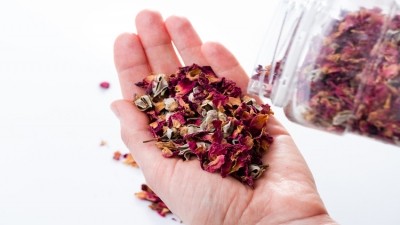Carotenoid intake may help reduce neurodegenerative disease in women

Although women generally live longer than men, they are much more likely to suffer from age-related disease and disability, which US researchers believe could be prevented through lifestyle changes.
The team carried out a review of clinical evidence on the effect of carotenoids (and particularly lutein and zeaxanthin) on age-related disease and disability, which clearly demonstrated broad prophylactic and palliative outcomes.
Writing in Nutritional Neuroscience, they explain that the antioxidant and anti-inflammatory properties of lutein (L) and zeaxanthin (Z) help ameliorate characteristic co-morbidities associated with age-related neurodegenerative diseases, like oxidative and inflammatory stress.
Professor Billy Hammond comments: "If you take all the autoimmune diseases collectively, women account for nearly 80%. So, because of this vulnerability, linked directly to biology, women need extra preventive care.”
Given the accumulated testimony, they surmise that a “relatively benign approach”, targeting antioxidant and anti-inflammatory elements of the diet, could significantly improve disease outcomes.
Female morbidity
Women in developed countries have a higher life expectancy than men (by seven years), however they exhibit high rates of illness and are more vulnerable to debilitating disease, the authors write.
On average, women represent two-thirds of all cases of dementia, including Alzheimer’s, and exhibit 38% lower retinal levels of L and Z, compared to men. As such, they are more susceptible to cataracts and co-morbidities associated with visual impairment (like macular degeneration), leading to additional disabilities.
Hammond explains: “Females may have a more robust immune response but then suffer from the long-term consequence such an enhanced response incurs (so called inflammaging).”
In particular, there is a strong link between female morbidity from illnesses affecting the central nervous system and conditions exacerbated by insufficient carotenoid uptake - and particularly lutein and zeaxanthin.
One of the reasons women are more vulnerable is that carotenoids, like other vitamins and minerals, are stored in body fat and - unlike men - serves as “a significant sink for many dietary vitamins and minerals” during pregnancy, making them less available for the retina and the brain.
Hammond says: “Part of the idea for the article is that recommendations need to be changed so that women are aware that they have these vulnerabilities that they have to proactively address, so they don't have these problems later in life."
Benefits of carotenoids
Carotenoids are found in green leafy vegetables and coloured fruit and are potent lipid-based antioxidants with strong anti-inflammatory properties. Researchers maintain increased intake has the potential to reduce visual and cognitive dysfunction and inhibit neurodegenerative disease progression.
In addition, higher levels of serum carotenoids are associated with reduced risk of ovarian and breast cancer, sarcopenia, skin wrinkling, inflammatory bowel disease, and multiples sclerosis, the experts say.
Crucially, L and Z are the only carotenoids in the retina and the primary carotenoids in the brain. They are known to improve cognitive function and prevent central nervous system degeneration, as well as protecting the retina from blue glare damage that precedes neurogenerative disease, like age-related macular degeneration and some forms of dementia.
Clinical evidence
There is a vast array of evidence demonstrating the positive effects of L and Z intake for women. Meta-analysis confirms a strong link between higher daily intake of green leafy vegetables (100 g) and a 25% reduced risk of all-cause mortality (such as cancer rates).
Studies also indicate that carotenoids, including L and Z, delay bone loss resulting from oxidative stress by preventing osteoclastic bone resorption and promoting osteoblastic bone synthesis.
Further research demonstrates that higher lutein and zeaxanthin status is directly related to clearer crystalline lens pre-cataract and lower incidence and prevalence of cataracts overall.
“The parallels between conditions that preferentially affect women and the link to carotenoids, especially L and Z is striking,” the authors say.
“Given the high probability of help and the low probability of harm, targeting the L and Z intake of women is a wise strategy.”
Source: Nutritional Neuroscience
Published online: doi.org/10.1080/1028415X.2022.2084125
‘The influence of the macular carotenoids on women’s eye and brain health’
Authors: Billy Hammond and Lisa Renzi-Hammond














